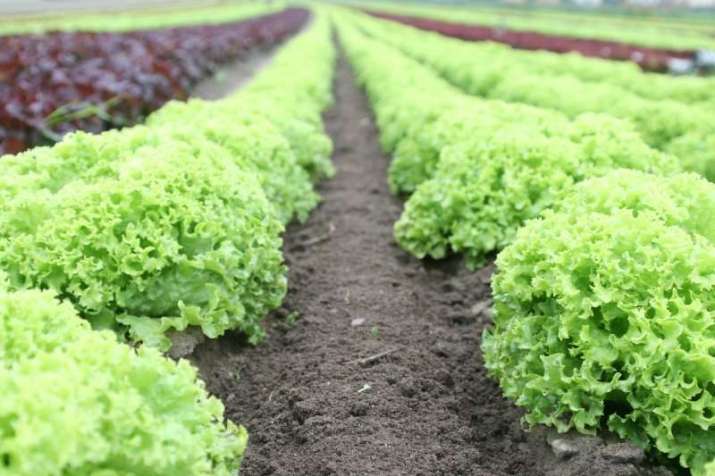It is not an exaggeration to say that gardening is in my blood. My father’s family made their living by sharecropping when he was a child. They picked cotton in exchange for being allowed to stay on the land and they maintained a small vegetable garden to feed themselves.
When his family left the southern US in search of work in northern factories, many of them maintained extensive gardens in their backyards. Some of my earliest memories are of watching my dad turn the soil in our back yard and plant seeds that grew into piles of tomatoes, peppers, and collard greens.
The harvest was always more than we could eat, so my job was to pack up plastic shopping bags with the extra produce, which would then be given to extended family members and close friends.
But as my dad got older, the garden got smaller until it finally disappeared altogether. And when I moved out of the house, a mix of time and circumstance kept me from starting a garden of my own.
It was not until many years later that I was able to follow in my father’s footsteps. I started small with houseplants that I purchased at a local nursery. And it was not long until my small apartment transformed into a jungle, with the number of plants going well into double digits.
I spent my afternoons researching their soil and light requirements, and finding new and inventive ways to protect them from my cat, Enso, who tried to destroy them with his claws.
I kept the blinds in my living room closed at all times like some sort of hermit to ensure my peace lilies had the darkness they needed to survive. I installed a timer and grow lights in my bathroom to ensure my pothos and philodendron plants received bright, indirect light. And I bought special, fast-draining soil for the cacti that adorned my bedroom.
It was not easy. Sometimes it was downright stressful keeping them all alive. But there was a feeling of deep satisfaction each time I came home and saw that one of them had grown a little bit.
Now I live in a home with outdoor space, and in addition to my houseplants I have begun to cultivate a vegetable garden. To that end, I am learning that outdoor plants differ from indoor plants in terms of their needs. For one thing, it’s more difficult to put them on a watering schedule.
If the weather is hot, they may need to be watered daily, sometimes twice daily in extreme cases. In contrast, if the weather is cool, a gardener might get away with only watering them two or three times a week.
Another way that outdoor plants differ from their indoor counterparts is the number of things that can kill them. I can rest easy knowing that if the indoor temperature is comfortable for me, then my houseplants will be fine and the only pests I need to worry about are the occasional housefly.
My vegetable garden is a different matter. A gardener can lose an entire crop if they plant too early and are hit by an unexpected frost. And the number of garden pests I need to watch out for grows each time I look out the window—ranging from moths who want to lay their eggs in my lettuce to squirrels who want to nibble on my cabbage.
That said, there is one way in which all plants are the same. In my experience, it does not matter where they come from or where they are planted, if I want my vegetables and houseplants to stay alive, I must pay attention to their needs.
As a gardener, I am required to keep an eye out for signs of under-/overwatering, pest damage, or poor soil, and to respond skillfully in the moment. In Buddhism, this is called Right Mindfulness. It works for plants and it also works for human beings.
So much so, in fact, that the Buddha made it the seventh tenet of the Noble Eightfold Path. “Pay attention” may seem like a simple maxim for life, and it is. But that does not mean that it is easy. In the same way that someone might forget to water their plants because they are distracted by negative emotions, it is not uncommon for people to ignore their own physical/spiritual needs due to a lack of mindfulness.
This can result in increased mental stress, poor health, and unintended harm to others because we are not paying attention to the ”garden” of our lives. In contrast, when we engage with daily life from a place of steadfastness and loving care, we can see problems as they arise—such as the hurtful tone we use when talking to a neighbor, the late nights that make us cranky in the morning, the garden plant in need of fertilizer, and so on—and we can correct course before the issues spin out of control.
More than that, we are better able to appreciate the good moments in life—such as the spouse who makes us dinner, the car that starts every time, the taste of food that came straight from the garden—because we are not distracted by other things.
So, in the same way that Right Mindfulness allows a gardener to protect and grow his crops more effectively, it allows a Buddhist to care for their life and enjoy it more often. In this way, we can end suffering both for ourselves and all sentient beings.
Related features from Buddhistdoor Global
Teachings from the Vegetable Patch
Grow Your Garden: A Simple Practice in Reflection, Part One
A Buddhist Garden of Peace in Rural Montana
A Humanitarian Action for Other Living Beings: Creating Space for Urban Biodiversity through Buddhist Gardening
Touching the Earth: An Ecodharma Retreat
Environmental Warriors: Buddhist Eco-monks and Tree Ordination
More from The Ordinary Buddhist by Sensei Alex Kakuyo
















